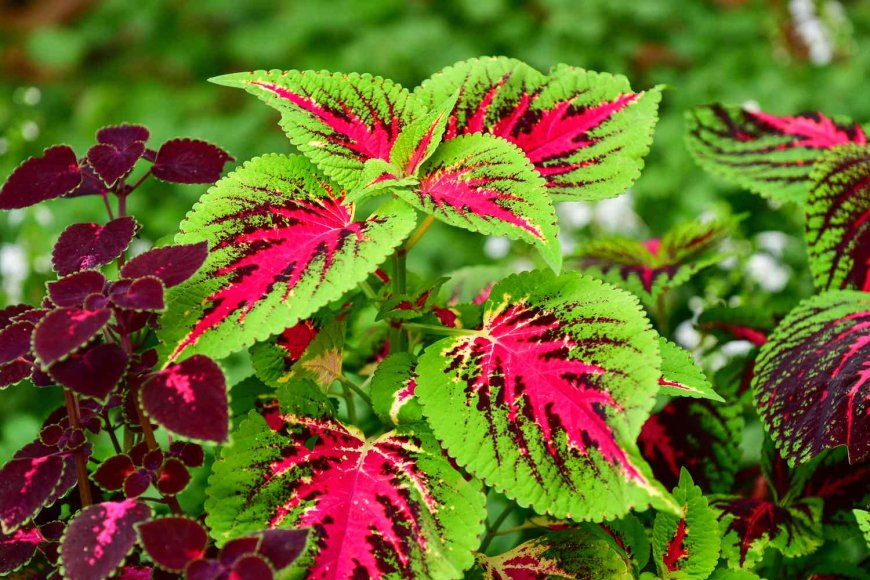The Power of Green: How Plants Transform Our Health, Mood, and Environment
Discover the incredible effects of plants on human health, mental well-being, and the environment. Learn how integrating greenery can reduce stress, improve air quality, and enhance your life.

e often take them for granted, those silent, verdant companions that grace our parks, adorn our homes, and carpet our planet. But plants, in all their diverse forms, are far more than just aesthetically pleasing. They are the quiet architects of life as we know it, playing an indispensable role in maintaining ecological balance and profoundly influencing human health and well-being. From the ancient forests that regulate our climate to the humble houseplant that brightens a desk, the "effects of plants" ripple through every aspect of our existence.
In an increasingly urbanized world, the connection to nature can feel distant. Yet, scientific research is continuously unearthing compelling evidence of just how vital this connection is. This blog post will explore the multifaceted impact of plants, revealing why embracing more green in our lives is not just a trend, but a fundamental need.
The Environmental Guardians: How Plants Sustain Our Planet
The environmental benefits of plants are foundational to life on Earth. They are the planet's lungs, engineers, and climate regulators, performing essential functions that keep our ecosystems thriving:
-
Oxygen Production and Carbon Sequestration: This is perhaps their most well-known role. Through photosynthesis, plants absorb carbon dioxide (a major greenhouse gas) from the atmosphere and release life-sustaining oxygen. Forests and plant-rich landscapes act as massive carbon sinks, playing a critical role in mitigating climate change by storing vast quantities of carbon in their biomass and the soil.
-
Air and Water Purification: Plants are natural filters. Their leaves absorb airborne pollutants like nitrogen dioxide, sulfur dioxide, and particulate matter, improving air quality, especially in urban areas. In water systems, plant roots help to filter out contaminants and prevent soil erosion, contributing to cleaner rivers and healthier aquatic ecosystems.
-
Biodiversity Hotspots: Plants form the base of nearly all food webs. They provide food and shelter for countless species, from microscopic organisms in the soil to large mammals. A diverse array of plants supports a rich biodiversity, which is crucial for ecosystem resilience and stability.
-
Climate Regulation and Temperature Moderation: Trees and vegetation cool their surroundings through shade and evapotranspiration (releasing water vapor into the air). This natural air conditioning combats urban heat island effects, making cities more livable and reducing energy consumption for cooling.
-
Soil Health and Erosion Control: Plant roots bind soil, preventing erosion from wind and water. They also enrich the soil with organic matter, improving its structure, fertility, and water retention capabilities – all vital for agriculture and healthy landscapes.
Nourishing Mind and Body: The Human-Centric Effects of Plants
Beyond their crucial environmental roles, plants exert a powerful and often subtle influence on our physical and mental health:
-
Stress Reduction and Mental Well-being: Numerous studies have shown that exposure to plants and green spaces can significantly lower stress levels, reduce anxiety, and improve mood. The act of caring for plants, whether in a garden or as houseplants, can be meditative and therapeutic, fostering a sense of calm and mindfulness. Research indicates that interacting with plants can lower cortisol levels (the stress hormone) and reduce physiological stress responses like elevated heart rate and blood pressure.
-
Improved Cognitive Function and Productivity: A touch of greenery in living and working spaces has been linked to enhanced focus, concentration, and creativity. Studies have found that people in environments with plants perform better on cognitive tasks, are more productive, and report higher job satisfaction. Even a view of nature from a window can have a positive impact.
-
Enhanced Air Quality Indoors: While the impact on a large scale is debated, indoor plants can contribute to better indoor air quality by absorbing certain volatile organic compounds (VOCs) and producing oxygen. Popular choices like Peace Lilies, Snake Plants, and Spider Plants are known for their air-purifying capabilities.
-
Faster Healing and Recovery: Research suggests that patients recovering from surgery or illness tend to heal faster and require less pain medication when they have a view of nature or plants in their recovery environment. This "biophilia effect" highlights our innate connection to living systems.
-
Physical Activity and Social Connection: Gardening, whether in a community garden or a personal plot, encourages physical activity. It also provides opportunities for social interaction and community building, combating feelings of isolation and fostering a sense of belonging.
-
Immune System Boost: Exposure to certain compounds released by plants, known as phytoncides, found in forests, has been linked to increased activity of natural killer (NK) cells, which are part of our immune system. This is a key component of the growing practice of "forest bathing" (Shinrin-yoku).
Conclusion: Cultivating a Greener Future
The evidence is clear: plants are indispensable to our planet's health and our own well-being. From the grand scale of global climate regulation to the intimate comfort of a potted plant in a living room, their effects are profound and far-reaching.
In an era defined by environmental challenges and increasing demands on our mental health, re-establishing and strengthening our connection with the plant world is not just a pleasant indulgence; it's a strategic imperative. Whether it's advocating for more urban green spaces, cultivating a home garden, or simply adding a few houseplants to your living environment, embracing the power of green is a simple yet powerful step towards a healthier, happier, and more sustainable future for all. Let's make an effort to integrate more of nature's quiet magic into our daily lives.







